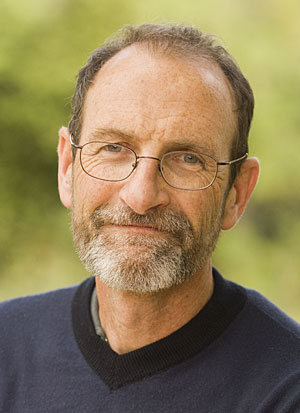Chris Field elected to serve as co-chair for Nobel Prize-winning climate-change group
Chris Field, a professor of biology and of environmental Earth system science, has been elected co-chair of Working Group 2 of the Nobel Prize-winning Intergovernmental Panel on Climate Change. The IPCC shared the 2007 Nobel Peace Prize with Al Gore.
Working Group 2 is charged with assessing the impacts of climate change on social, economic and natural systems and suggesting ways that humankind can adapt. There are three working groups within the IPCC, each with two co-chairs, one from a country with a developed economy, the other from one still developing. Field's co-chair will be Vicente Barros of Argentina.
"Chris is going to be a very, very busy camper for the next five years," said Stephen Schneider, the Melvin and Joan Lane Professor for Interdisciplinary Environmental Studies. "I would say that he's taken on one of the half-dozen most important jobs in the world at the environmental science and policy interface, and they couldn't have picked a better person."
"What the job calls for is balancing the opinions and the knowledge base of hundreds of scientists, thousands of reviewers and a hundred governments into a coherent and credible synthesis," Schneider added. "Nobody can do that alone. Leadership is key, and Chris brings the combination of very, very broad knowledge and high credibility as a scientist. He was a great choice."
Before they can begin that balancing act, Field and Barros will have to assemble a core group of well over 500 scientists to be authors of the next report, due in 2014.
Field said there will likely be some changes from the last report in the areas on which the group focuses. "We may change the structure of the assessment in some important ways that let us address issues that have become important only in the last few years," he said. "We'll probably have more people working on ocean-related issues than we did in the last round."
Field was the coordinating lead author of Chapter 14 of the report of Working Group 2 in the Fourth Assessment Report of the IPCC, which came out in 2007. Chapter 14 focused on the implications of global warming for North America, such as dramatic decreases in the water stored in mountain snow packs, changes in sea level and the timing of seasonal events, and increasing incidences of natural disasters, such as wildfires and hurricanes. Schneider was the coordinating lead author of Chapter 19 of the report, which assessed the vulnerabilities of biological, geophysical and socio-economic systems and the degree to which they are at risk from climate change.
"He will have a very high carbon footprint," Schneider said, reflecting on the amount of travel that will be required of Field in his duties as co-chair. "But hopefully the thousands of tons of CO2 he will generate in airplanes will be offset by millions [of tons] that we avert by warning the world. That's our wish."
Field and Schneider are fellows at Stanford's Woods Institute for the Environment. Field is the director of the Carnegie Institution's Department of Global Ecology at Stanford and faculty director of Stanford's Jasper Ridge Biological Preserve.


Share This Story